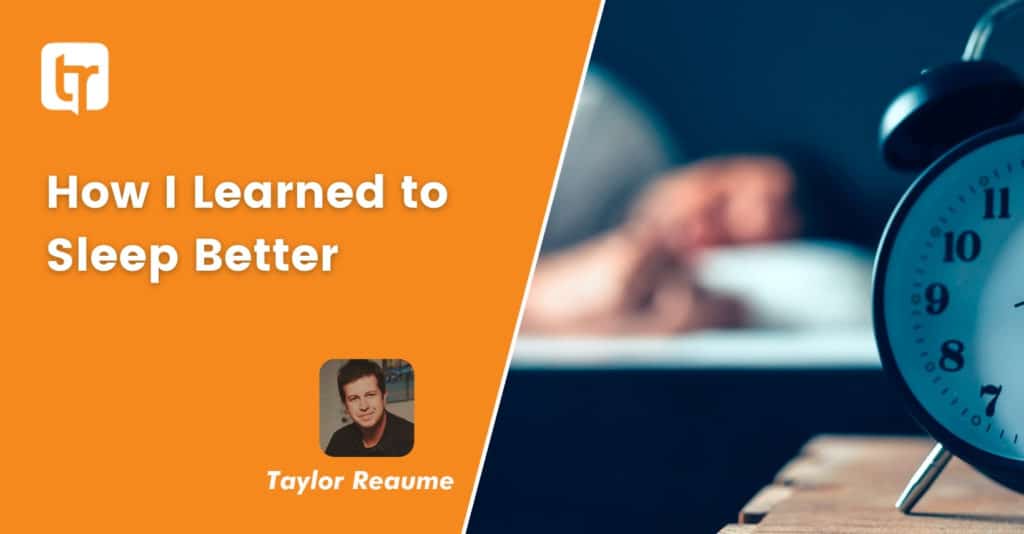
When I first started having sleep problems, I did some research and found a few surprising statistics:
- Amount of Sleep Needed: The Centers for Disease Control and Prevention recommend the following amounts of sleep per night:
- 0–3 months: 14–17 hours
- 4–12 months: 12–16 hours per 24 hours (including naps)
- 1–2 years: 11–14 hours per 24 hours (including naps)
- 3–5 years: 10–13 hours per 24 hours (including naps)
- 6–12 years: 9–12 hours per 24 hours
- 13–18 years: 8–10 hours per 24 hours
- 18–60 years: 7 or more hours per night
- 61–64 years: 7–9 hours
- 65 years and older: 7–8 hours
- Sleep Problems: The American Sleep Association (ASA) reports that 50-70 million adults in the United States have some type of sleep disorder.
- Lack of Sleep Interrupts Our Lifestyles: 37.9% of the ASA survey respondents said they unintentionally fell asleep during the day at least once in the preceding month.
- Lack of Sleep is Unsafe: 4.7% reported nodding off or falling asleep while driving at least once in the preceding month. Drowsy driving was found to be responsible for 1,550 fatalities and 40,000 nonfatal injuries annually in the United States.
- Lack of Sleep Can Be Deadly: 100,000 deaths occur each year in American hospitals due to medical errors; sleep deprivation has been shown to make a significant contribution to these figures.
The sleep-challenged may not be alone, but that doesn’t make us feel any better. As children, we could fall asleep so easily – sometimes right at the dinner table! And, now, it is just such a nightly drama. Whether it’s due to stress, medical conditions, or poor sleep habits, more and more adults are sick and tired of being tired!

What are the benefits of a good night’s sleep?
Getting a good night’s sleep is one of the most important things you can do for your health. It gives your body time to repair itself. Good sleep helps the body rebuild muscles, keeps your senses sharp, and maintains healthy skin. Sleep also allows your body to rest and recover for the next day. Its many benefits include:
- Improved memory and learning: When you are asleep, the brain does its mental housekeeping. When you get enough sleep, you can more easily recall vital facts and experiences.
- Improved problem-solving: A problem might be gnawing at us, but the ability to just “sleep on it” can make all the difference. When we get enough sleep, we are able to look at things from a new angle and solve complex problems.
- Improved focus and attention: The part of the brain that deals with problem-solving, decision-making, and reasoning is the same part that allows for the ability to pay attention and focus. That’s why attention wanes in the afternoon after working all morning – your brain is getting tired!
- Improved mood: Have you ever experienced crankiness when jolted awake by your alarm clock after a lousy night’s sleep? Sleep-deprivation leads to more stress, anger, sadness, and mental exhaustion.
You will find that a good night’s sleep can make all the difference in your daily life. You will be able to handle the stresses of work with ease, be more alert, and will feel better physically as well.
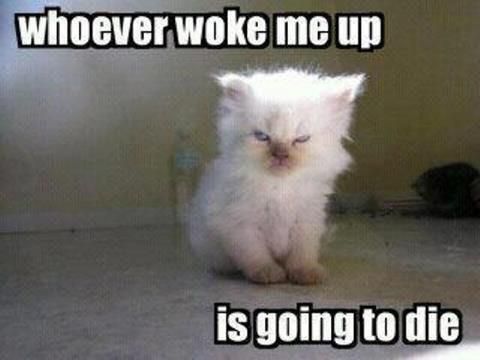
How I Improved the Quality of My Sleep
I researched a number of ways to improve my sleep, and here are some of the strategies I found:
- Melatonin: Many people worry that it will make them feel sleepy the next day. However, a Consumer Reports survey found that only 5-10% of people said they feel sleepy the day after taking melatonin. When I first tried Melatonin, I saw only moderate improvements in my sleep quality. But it wasn’t until I started taking Melatonin with 5HTP and Rhodiola, that I began to see a big difference. This unique mixture of ingredients in one pill, significantly improved my sleep quality. The company is called Irwin Naturals, and they have an weirdly effective mixture of Melatonin, 5HTP and Rhodiola that seems to paralyze me when sleeping. This is a good thing, because it lets my body goto work and do some deep healing. There is something about this formula that really made a huge difference in my quality of sleep. It knocks me out cold. Read the reviews on amazon, and you will see what I mean.
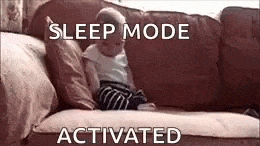
- Establish Healthy Sleep Patterns: The American Sleep Apnea Association recommends setting a specific pattern for going to bed. Some of our current nighttime habits actually work against sleep.
- Cognitive Behavioral Therapy: CBT is a multi-component approach that aims to combat the maddening symptoms of insomnia. This therapy works to restructure or break down the cycle of frustrating thoughts by identifying and altering unconscious beliefs that contribute to insomnia. The Sleep Foundation reports that 70-80% of patients with primary insomnia improve after applying the CBT technique.
- Mattress and Bedding: The 2012 Bedroom Poll reported that 93% of people said a comfortable mattress is important to being able to get quality sleep; 78% said they are more excited to go to bed if they have fresh-smelling sheets. I bought an Original Lull Mattress, sheets, and duvet. The Lull Mattress, which is made of non-toxic materials, stays cool, bounces back, and provides solid back support.
- Wearable Devices and Sleep Apps: According to Gartner, the market for wearable devices, which includes activity and sleep trackers, is expected to reach over $62B this year. A National Library of Medicine paper which examined the use of mobile phones for sleep tracking found that 28.2% of U.S. adults used a smartphone app to help keep track of their sleep. My personal preference is Sleep Cycle. This app analyzes and tracks your sleep, and wakes you up at the perfect time feeling rested.
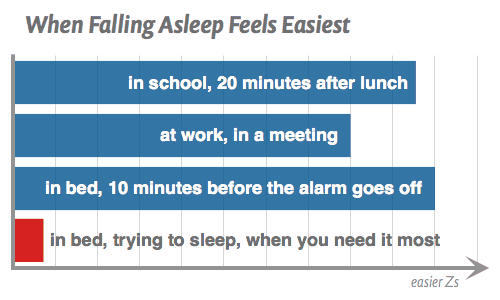
Case Studies About How to Improve Sleep Quality
Some interesting case studies about various methods to improve sleep include:
- Exercise to Improve Sleep Quality: The findings suggest that exercise can improve sleep quality without notable adverse effects.
- Wearable Solution from Philips: The SmartSleep tracker from Philips is a closed-loop, EEG-based system with two small sensors that detect periods of slow wave sleep and intervene with clinically proven customized audio tones to boost it in real time. 70% of users report feeling less tired during the day.
- Sleep Positions: OnHealth found that sleeping on your side may be good for those who snore. It is also possible that sleeping on your side could help your brain clear out waste more quickly. Patients with GERD usually find it is best to sleep on their left side.
Mayo Clinic also has five suggestions to get better sleep. You have nothing to lose — only a bad night’s sleep, bags under your eyes, and one yawn after another during an important meeting. I don’t miss them, and neither will you!
Share your comments below. I’d love to hear what’s worked for you? Here’s to a deep and restful sleep tonight!
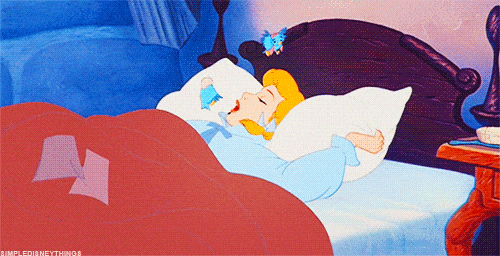


There’s also research regarding sleeping besides gadgets such as smartphones and laptops. Apparently, those who sleep beside these gadgets will result in a bad night’s sleep, while those who sleep without these gadgets beside them will wake up feeling recharged.
Turning on your eye protection from your gadgets can also help before going to bed. That’s because warmer colors, apparently, can protect your eyes from the blue light.
Wow. These are some insightful pieces of advice regarding sleeping better. Who would have thought that there is a specific amount of sleep needed depending on the age group? I was taught that the average sleep time is 8 – 10 hours and that it doesn’t make a difference for any age, but I was proven wrong in this blog post.
But indeed, having a lack of sleep is unsafe for any person. Continuing this habit may result in fatigue or some serious medical condition. Furthermore, it is bad for the body, so sleep is definitely vital for any person.